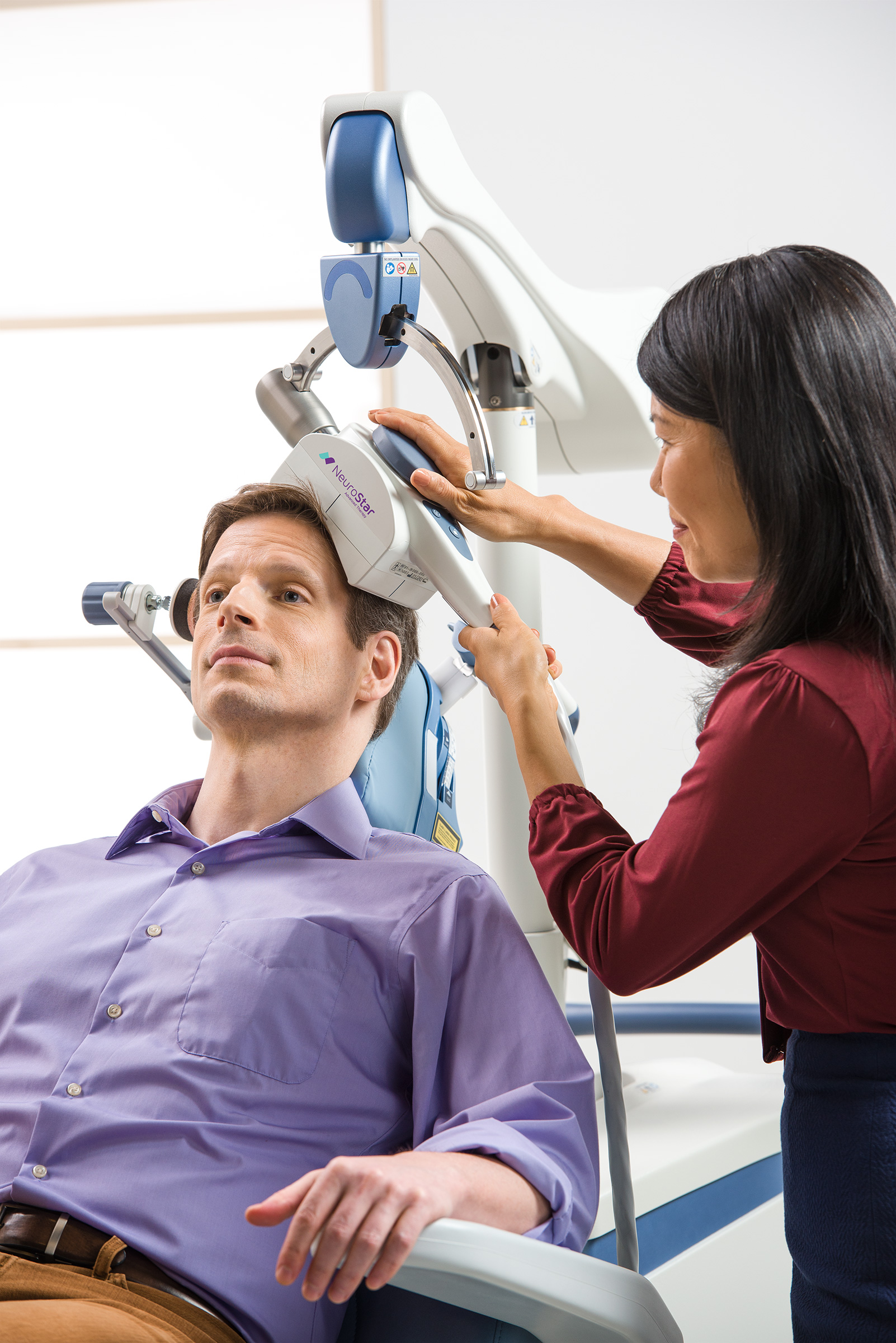Transcranial Magnetic Stimulation (TMS)

Depression is a common mood disorder that negatively affects how you think, feel and act. According to World Health Organization, “approximately 280 million people in the world have depression.” People who have depression often have symptoms that can be serious enough to cause visible problems in day-to-day activities.
While there are ways to navigate depression with medication, sometimes that can be a struggle. Here at Family Psychiatry, Counseling & Wellness, we understand that there isn’t just one fix-all solution to help patients. With that in mind, we are very excited to announce that we have partnered with NeuroStar to bring Transcranial Magnetic Stimulation (TMS) to our patients.
TMS therapy is an FDA-cleared, non-invasive, and non-drug treatment that uses electromagnetic pulses, like a magnetic resonance (MRI) machine, to stimulate underactive brain cells. TMS treats depression right at the source, it is like physical therapy but with the brain. This type of treatment is used to treat people with major depression who have not benefited from prior medication.
TMS Therapy is effortless:
The therapy sessions are conducted in the comfort of your doctor's office
In-office treatments take only 20 minutes
You are awake during treatment
There are no negative effects on memory or sleep
Resume normal activities immediately after, including driving to and from appointments
No antidepressant side effects
One of the true benefits of TMS therapy is that you are actively making physical steps to improve yourself and your relationships with others. With every appointment, you are creating positive habits that you can be proud of. Studies show that 83% of patients responded to TMS and 62% of patients achieved complete remission of symptoms after 4 to 6 weeks of treatment and lasted 12 months.